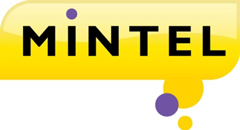
While consumers overall are becoming increasingly protective of their personal information, millennials are much more prone to over-sharing relative to their baby boomer parents, according to new research by Mintel.
Fully 60 percent of millennials would be willing to provide details about their personal preferences and habits to marketers, whereas baby boomers are much more protective of their personal information. Interestingly, even for the most private of information, at least 30 percent of millennials who first claimed they would not provide it said they would do so after receiving an incentive offer (i.e., a $10-off coupon toward their next purchase), whereas only 13 percent of baby boomers could be swayed by these same type of incentives.
Mintel also found that for more tech-skewing information, such as cell numbers and social media profiles, millennials are much more likely to share this with companies than baby boomers (30 percent vs. 14 percent and 27 percent vs. 10 percent, respectively). Yet, for something a little more old-fashioned, such as a mailing address, the trend is reversed, with 40 percent of boomers offering up this info compared to 38 percent of millennials. Credit scores are the most private information across the board, with only 17 percent of millennials and 8 percent of baby boomers willing to provide that information.
“What this shows is that the younger generation, who grew up in the information age, is clearly more comfortable with sharing those types of personal information and are far less skeptical than their parents,” said Fiona O’Donnell, category manager, retail, multicultural, lifestyles and leisure for Mintel. “Millennials are predisposed to share their personal habits and contact information with marketers, but they do so only when the perceived benefits outweigh the risks. Given that their generation accounts for nearly a quarter of the population, the implications for businesses are tremendous, because as millennials go, so goes the U.S. economy.”
Indeed, although they have less discretionary income than some of their older peers, 42 percent of millennials say that buying something that makes them feel good about themselves is very important, which is significantly higher than any other generation. This number jumps to 52 percent of millennial dads, suggesting that there is an opportunity for marketers to take advantage of this desire for personal and sometimes immediate gratification.
“Millennials may be more apt to share, or even over-share, relative to other age groups, but they are also the most diverse generation, so marketers must know how to take this information and tailor campaigns that will be engaging and meaningful,” O’Donnell said. “Millennials are content creators and well-known for their desire to be involved. In order to overcome the fragmentation of channels and attention, marketers and program creators need to engage their customers.”

